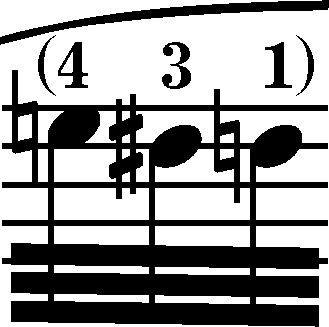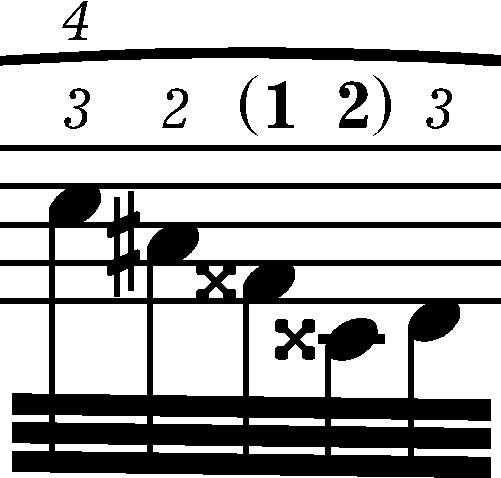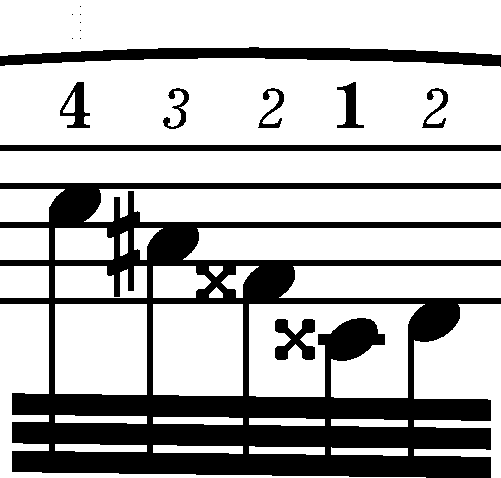



This bar includes unambiguous (FED and FES) or possible (FEH) Chopinesque entries in three pupils' copies. In FEH, where the fingering is most abundant, it was 20 notes that were provided with digits, in FES – 5 or 6, while in FED – 2. The presented fingerings can be naturally divided into 4 independent groups, so that in a performance one can take into account all or only some of them. The fingerings in FES and FEH are compliant – all digits written in FES are also in FEH, which significantly contributes to the authenticity of the latter. In turn, the fingering in FED, although it can be combined with the entries in FES, differs, however, from the fingering of this fragment of the roulade written in FEH. According to us, one can also take into consideration the fingering of EE, largely identical with FEH.
The differences between the fingerings written in various sources or the ones resulting from them concern the last two out of four fragments isolated by us – the e2-d 2-d2 sequence and the following c
2-d2 sequence and the following c 2-a
2-a 1-f
1-f 1-c
1-c 1-d
1-d 1 passage. In the examples presented below, the fingers that are absent in the sources are marked with smaller digits in italics.
1 passage. In the examples presented below, the fingers that are absent in the sources are marked with smaller digits in italics.
One can see that each of the fingerings of the first fragment may be easily combined with each fingering of the second one. According to us, it is, however, the fingering of EE that is a natural continuation of the fingering of FED – such a fingering results from Chopin's entries in a very similar position in bar 94; moreover, when the 1st finger falls on f 1, the e2-d
1, the e2-d 2-d2 sequence may be performed in a more comfortable manner, i.e. with the 4-3-4 fingers.
2-d2 sequence may be performed in a more comfortable manner, i.e. with the 4-3-4 fingers.
category imprint: Differences between sources
issues: Annotations in teaching copies, Annotations in FES, Annotations in FEH
notation: Fingering
Back to note



 ,
,  ;
; ,
,  .
.